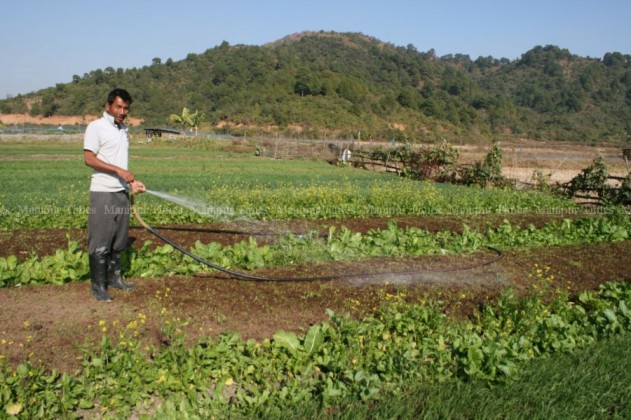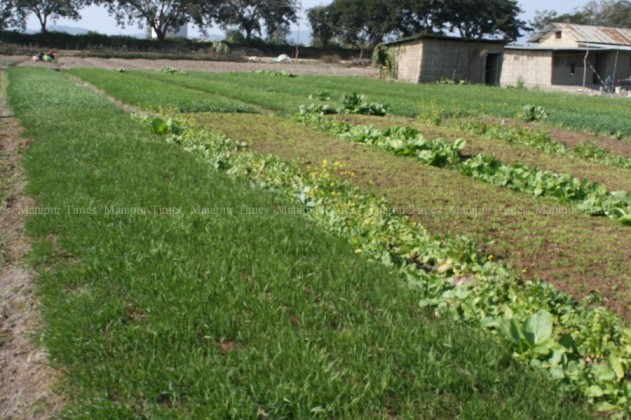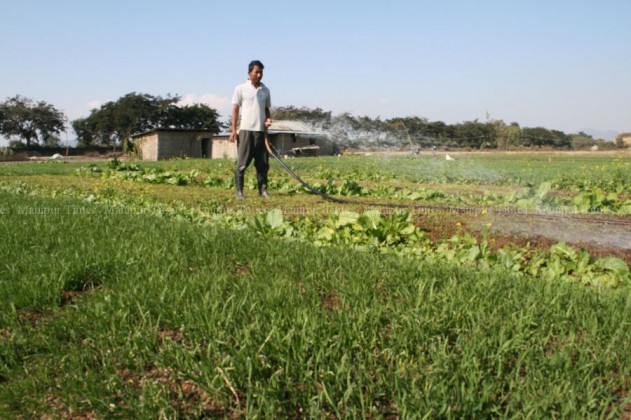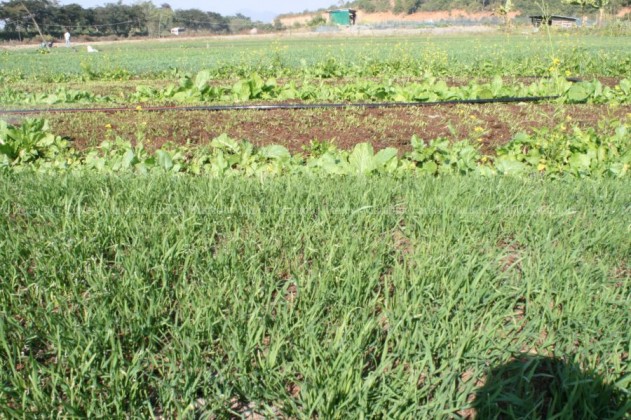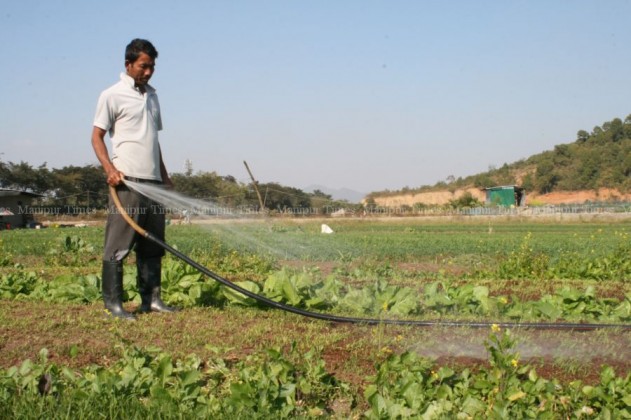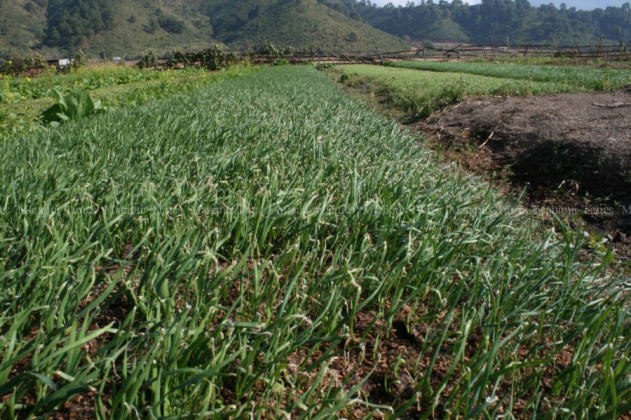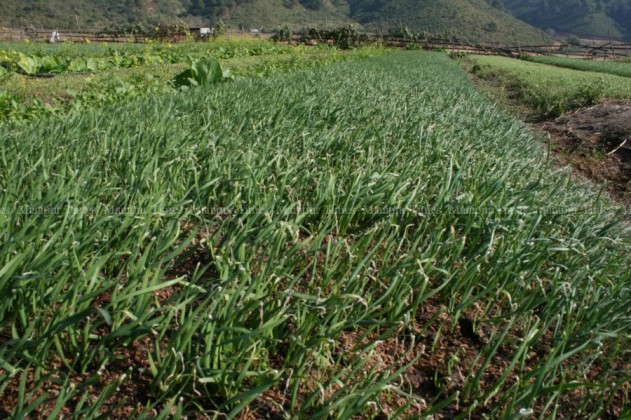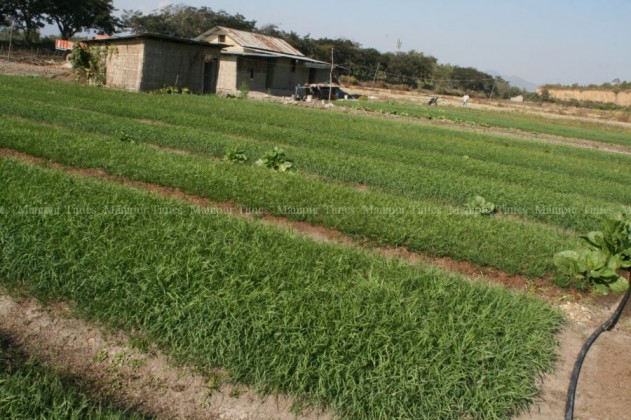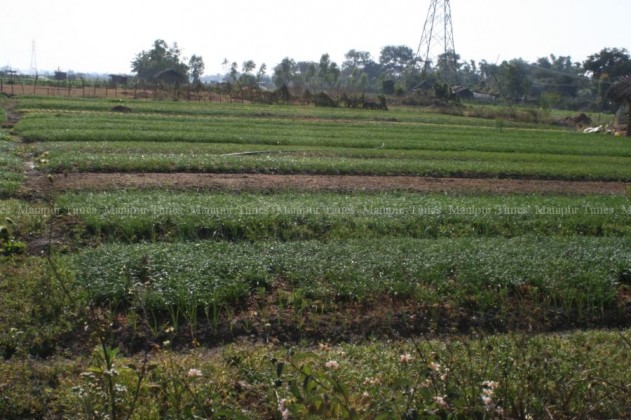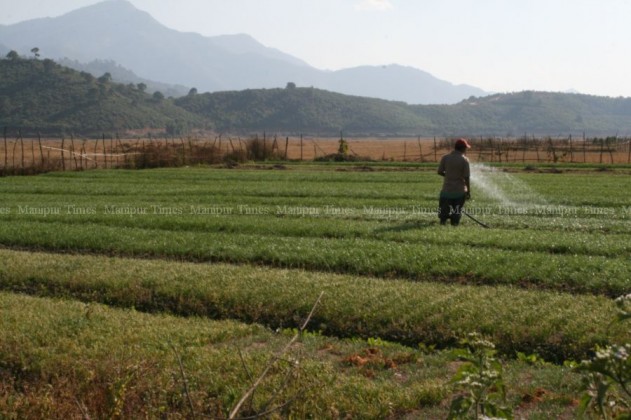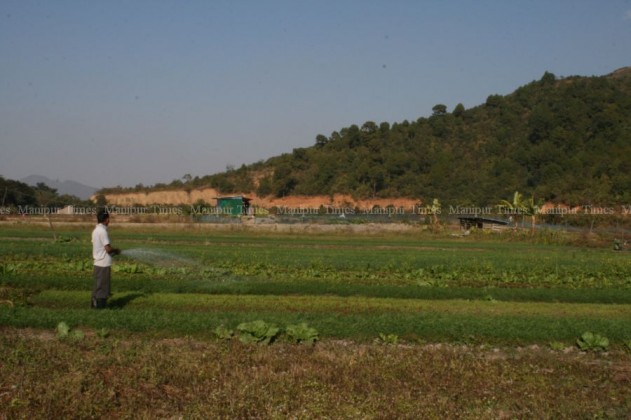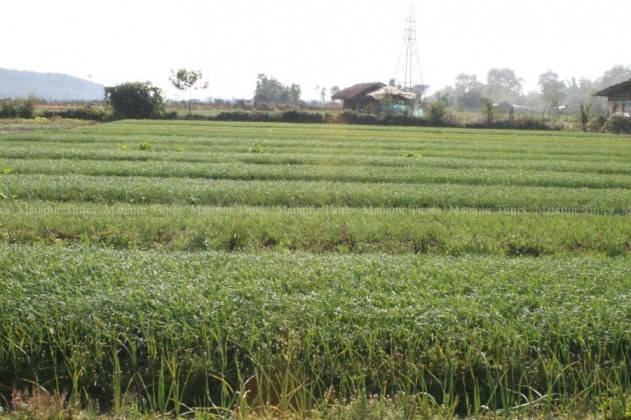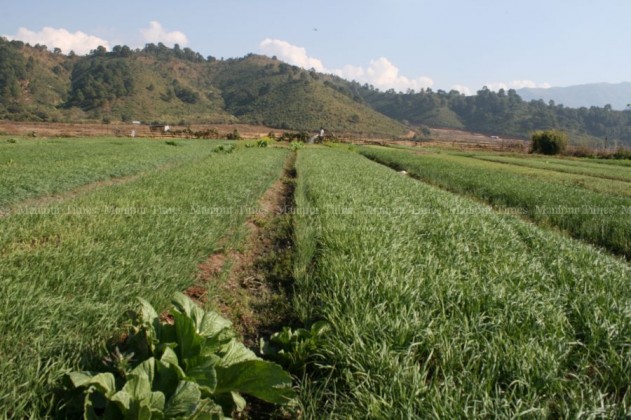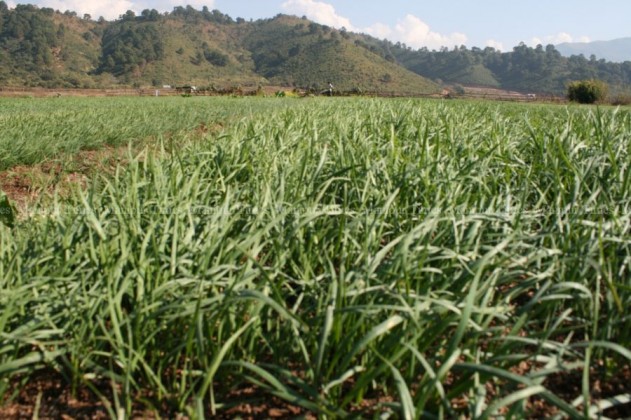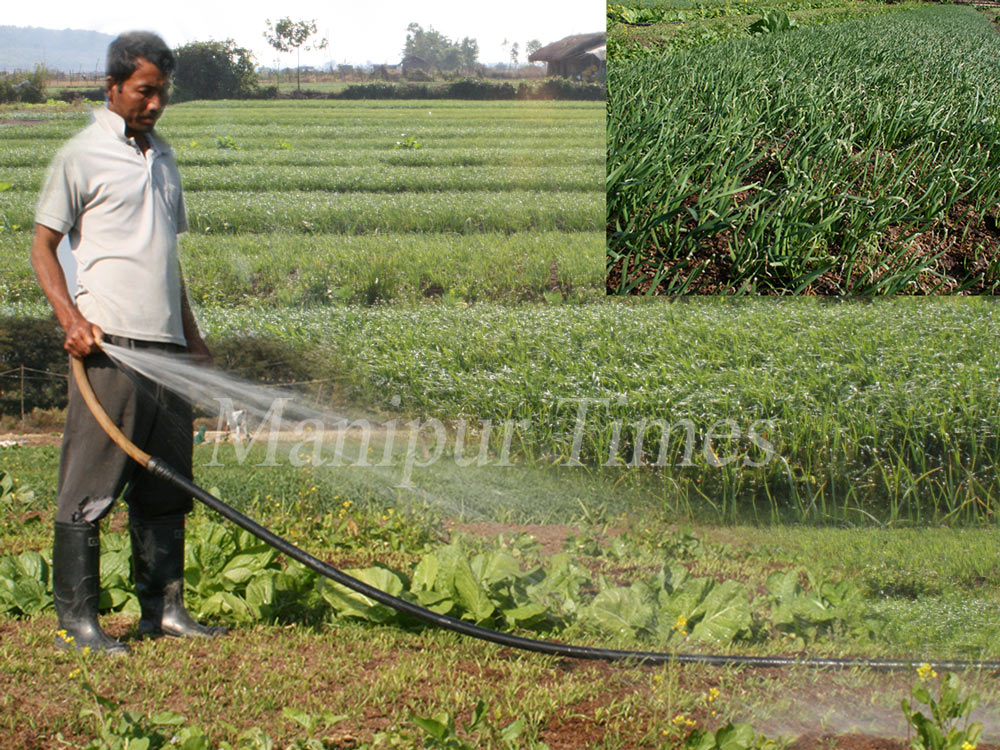 There is always a route of hard working people to survive and they attempt to explore alternative ways to grasp it. In general most of the people are running for a Government job through bribery or unfair means and it is definitely a do or die. Nongmaithem Nabachandra Singh, hailing from Top Moirangkampu village, about 9 km away from Imphal city east ward located on the bank of Iril river, is among the hard working men, struggling to sustain his family of seven members including his four children, his wife and his old and ailing mother by running a farm of Garlic chives, locally known as Maroi Nakupi (Allium tuberosum) farm.
There is always a route of hard working people to survive and they attempt to explore alternative ways to grasp it. In general most of the people are running for a Government job through bribery or unfair means and it is definitely a do or die. Nongmaithem Nabachandra Singh, hailing from Top Moirangkampu village, about 9 km away from Imphal city east ward located on the bank of Iril river, is among the hard working men, struggling to sustain his family of seven members including his four children, his wife and his old and ailing mother by running a farm of Garlic chives, locally known as Maroi Nakupi (Allium tuberosum) farm.
Barren field into greenery farm
Farming Maroi Nakuppi to the field which lie barren after harvest was the golden initiation of income harvest as well as aesthetic value to our field, said Nabachandra. Converting his vast paddy field, located at Top Moirangkampu village Loukol, into farming of Chives or ‘Maroi Nakuppi, a tiny grass-like herb considered to have medicinal value and preferred by most people for kitchen purpose is a message to the people for a green revolution in the state. Following Nabachandra, many other farmers of Moirangkampu have now converted their fields into the same occupation giving the vast field greenery look all the time while rest of the fields in Manipur are lying barren off- season. In fact, lack of resources and work culture of our people compelled to depend on others for food and other essential commodities, added Nabachandra.
Water, the sole saviour
Like Ishikha Loukon of Imphal east, which is popular for Potato products; Moirangkampu Loukon is now very popular for its Maroi Nakupi products. Interacting with Manipurtimes, he said that Good irrigation is one of the most indispensable factors for Maroi Nakuppi farming. He used to water his Maroi farm twice a day i.e. Morning and evening with the help of water sprinkler. Whenever he fails to water, the growth of Maroi Nakuppi plants get severely affected. Water spraying is obvious every morning during the winter season to wash out the morning snowflake perked on the leaves of the plants, otherwise it peck the tiny and tender leaves to let dry.
“Irregular power supply is the main hindrance we, the Maroi Nakuppi farmers, are facing in our business venture nowadays. Success in such sort of farming entirely depends on regular irrigation. Water irrigated from the Iril river with help of a water pump make survive the plants. Regular power supply is must to operate the water pump, however, electricity department is providing Power for only two hours (7am to 9am) in the morning and three hours (2pm to 5 pm) in the evening daily. I have to spray water when power comes. To meet the need of the plants, as an alternative back-up, I spend extra expenditure on buying diesel to operate the water pump during load shedding or prolong power failure. If the power supply is regular, It will be a boon to the farmers who always persist to cultivate more products”, said Nabachandra while appealing the Government for regular power supply in farmers’ interest.
Organic manures give an additional food value while concerning health
Nabachandra, who has been running the business for about five years, presently employs local people by paying daily wages to support him in the farming activities comprises transplanting the Nurseries, cutting of the matured Garlic chives and water sprinkling etc. Organic manures such as poultry wastes, locally known as Yenthi, cow-dung, decayed Rice husk etc. are the manures he used for his Garlic chives farming. These organic manures are collected from the nearby local rice-mills, Poultry sheds etc. One loaded truck of rice husk mixed with poultry waste costs Rs.3000. Rice husk, poultry waste considered to be useless and thrown away in past have now been made a useful organic manure since the coming out of many Maroi Nakuppi farmers in Top Moirangkampu area.
Production and transportation
Farming on Maroi Nakuppi turns up to be a good business and has a last long prospects since it is widely used and preferred by most people in view of its medicinal value. One row (feidom) of the field provide about 30/40 bundles of Maroi nakuppi. About 150 to 200 bundles of ‘Maroi Nakuppi’ are produced daily in average. Each bundle is sold at Rs. 20 to 30 wholesale rates in the local market through different women vendors. The bundles of Maroi Nakuppi are transported from his farm upto khwairamband keithel by a TATA Di. By his business, he got satisfy and has been able to make a profit to sustain his family and others’.
Happiness of persistent and pursue
“For a getting a Government job, I tried whatever I could, even sold out a piece of paddy field, which we used to cultivate to get a white collar job through lobbying and bribing the officials. However, I got defeated in this present trend of getting a Government job. Having failed to get a Government job, I was so restless and depressed thinking of my future. Had nothing to do with, I thought of starting a Maroi Nakuppi farming at our Paddy field, which used to lie barren and dry after harvest for several months. Now the income from the farm is satisfactory as I can maintain my family easily. In fact, my income is now comparable to that of a state government employee’s pay”, claimed Farmer Nabachandra while stating to Manipurtimes and he no longer envy of Government job as the income from his farm is fat and is more satisfactory than what he expected from a Government job.
The ultimate message to our society
It is fact that Manipuris are generally lack of work culture and it has been a long culture in the state to leave the vast fields unused for long after harvesting season. We can earn more income by greening the vast field if we all have work culture and wish to toil for earning. An idle person has no work to do; God favours those who wish to work. We should not mean the fields in Manipur only for paddy cultivation. Besides paddy, farmers can cultivate and produce other crops. Untill and unless the present work habit of Manipuris is amended; the state, which is lack of resources and job opportunity, will never develop and dependency culture will go forth, observed Nabachnadra, who wishes to convey the message to the people that other crops can also be cultivated to earn more income as compared to paddy cultivation.

